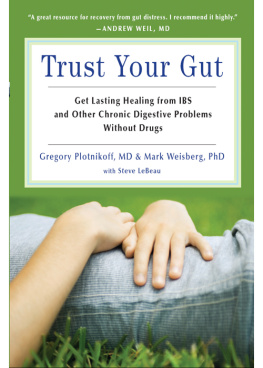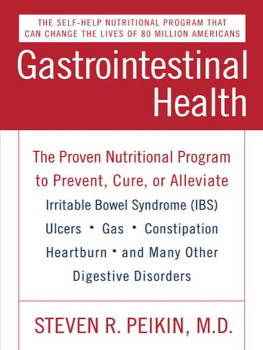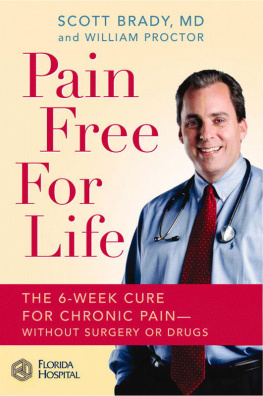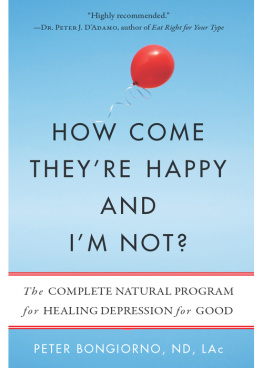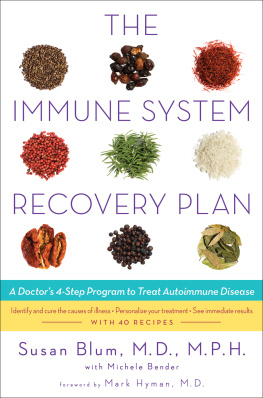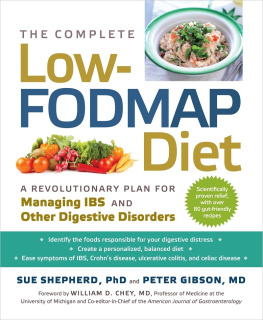
First published in 2013 by Conari Press, an imprint of
Red Wheel/Weiser, LLC
With offices at:
665 Third Street, Suite 400
San Francisco, CA94107
www.redwheelweiser.com
Copyright 2013 by Gregory A. Plotnikoff and Mark B. Weisberg
All rights reserved. No part of this publication may be reproduced or transmitted in any form or by any means, electronic or mechanical, including photocopying, recording, or by any information storage and retrieval system, without permission in writing from Red Wheel/Weiser, LLC. Reviewers may quote brief passages.
ISBN: 978-1-57324-588-3
Library of Congress Cataloging-in-Publication data available upon request
Cover design by Jim Warner
Cover photograph Zen Shui/SuperStock
Interior by Maureen Forys, Happenstance Type-O-Rama
Typeset in New Century Schoolbook and Optima
Printed in the United States of America
VG
10 9 8 7 6 5 4 3 2 1
The paper used in this publication meets the minimum requirements of the American National Standard for Information SciencesPermanence of Paper for Printed Library Materials Z39.48-1992 (R1997).
www.redwheelweiser.com
www.redwheelweiser.com/newsletter
CONTENTS
The information provided in this book is not intended as a substitute for professional medical advice but as an important supplement to it. If you are experiencing any serious symptoms that you have not yet discussed with your doctor or other health care professional, please seek medical attention.
The patient stories presented in this book come from many years of clinical experience. To protect privacy, all identifying characteristics and data have been changed.
Acknowledgments and expressions of gratitude follow the text. They are found on pages 231-234.
We dedicate this book to our many teachers: patients, professors, mentors, colleagues, friends, and family. We are deeply grateful for all that you have taught us. You have blessed us. We hope this book honors you.
INTRODUCTION
W e created this book to empower you to take control of your health.
If you or someone you love is plagued by chronic digestive distress, you know what its's like to be held captive by your gut. You feel increasingly frustrated and don't know what to do next. You've probably seen several competent physicians who have devoted their best efforts to thoroughly diagnose and treat your condition. You may have tried many different medications to treat the symptoms, only to find that they brought temporary relief at best. You have lived in fear of your unpredictable problem that forces you to find excuses for canceling events. We wrote this book to let you know there is a way out of this cycle of suffering. We have combined ancient wisdom about the body and mind with the newest findings in medicine, psychology, and neuroscience to create a holistic program that lets you take back your life. All you need to add to the equation is you.
Here is a story that may be familiar to you. We have heard variations of it from hundreds of patients. It is the story of Maria, who is a composite of many people we have treated.
Maria's Helplessness
Maria, a married mother of three teenagers, worked full time in a busy office downtown. One day she began to feel pains in her abdomen, followed by a severe bout of diarrhea. She figured it would go away, like it always had before.
I was too busy to care about me, she said.
But it didn't go away. It got worse. The diarrhea started alternating with periods of constipation. She couldn't predict what she would experience next. She began missing meetings at work because she was in the restroom. Some days she would call in sick just in case.
When she realized she was distancing herself from her family and friends, she went to see her primary care physician. She examined Maria and ran all the appropriate diagnostic tests but couldn't find anything physically wrong. She also assessed her for depression, anxiety, post-traumatic stress disorder, and excessive stress. Maria's doctor recommended fiber and gave her a referral to see a gastroenterologist (GI specialist). The GI specialist gave Maria a colonoscopy and several other tests to rule out serious physical pathology. The results are all negative, said the specialist. This means that your symptoms are not due to something serious like cancer or inflammatory bowel disease. Your symptoms are due to irritable bowel syndrome, or IBS.
She then discussed lifestyle changes and stress reduction, and reviewed the range of prescription drugs that might be helpful. She also suggested that Maria might benefit by seeing a psychologist to address some of the stresses affecting her symptoms. Maria was concerned about the drug recommendations because of her previous sensitivity to medications. And the suggestion to see a psychologist pressed the wrong button in her. Now Maria was really scared. They think I'm crazy, she said to herself. They think it's all in my head.
The psychologist could not solve her problem either. It is true that severe depression or acute anxiety can cause intestinal problems, he told Maria, but I don't think you have psychological issues significant enough to warrant treatment. A psychiatrist might prescribe something to help you relax, but otherwise I don't think my services would be helpful for you at this time.
Maria was back where she started, only worse. She made the rounds of seeing different doctors and getting prescriptions that treated her symptoms, but she felt no hope for successful treatment. I've been scoped from both ends and told that not much can be done for me, said Maria. Yet I still have pain and gastric distress. What now?
What Maria didn't realize was that she wasn't the only one who felt frustrated and helpless. The health professionals who see patients like Maria often feel frustrated by their limited impact on problems like hers. This can be true even for GI specialists, the physicians with the most training in gastrointestinal diseases. They are the ones we go to for evaluation for the most serious or life-threatening diseases, such as gastrointestinal cancer and inflammatory bowel disease. They have the technologies for diagnosis of organic or structural diseases. But even they get frustrated by the severe suffering experienced by those who have unexplained symptoms, what is termed functional bowel disease. In spite of the diligent and caring work of GI specialists, Maria and millions of others can't find relief for their chronic digestive distress. Can't anything be done for them?
That's where we enter the picture. Greg Plotnikoff is an MD and a leader in the field of integrative medicine who spent six years in Japan studying traditional medicine. Mark Weisberg is a PhD psychologist who specializes in the treatment of chronic pain and the emerging field of clinical health psychology. Our novel approach extends the range of standard practice in both medicine and clinical psychology. We share a holistic vision of how the body and mind work together, a perspective that allows us to see new ways to solve old problems. As recently as ten years ago, our holistic approach would have been marginalized by the medical profession. These days we are the go-to doctors that other doctors refer their patients to when they run out of answers. We wrote Trust Your Gut to share our answers with you, so you can help yourself. This book will help you free yourself from your chronic misery.
A Revolution in the Treatment of Gut Distress: The CORE Program
Next page
